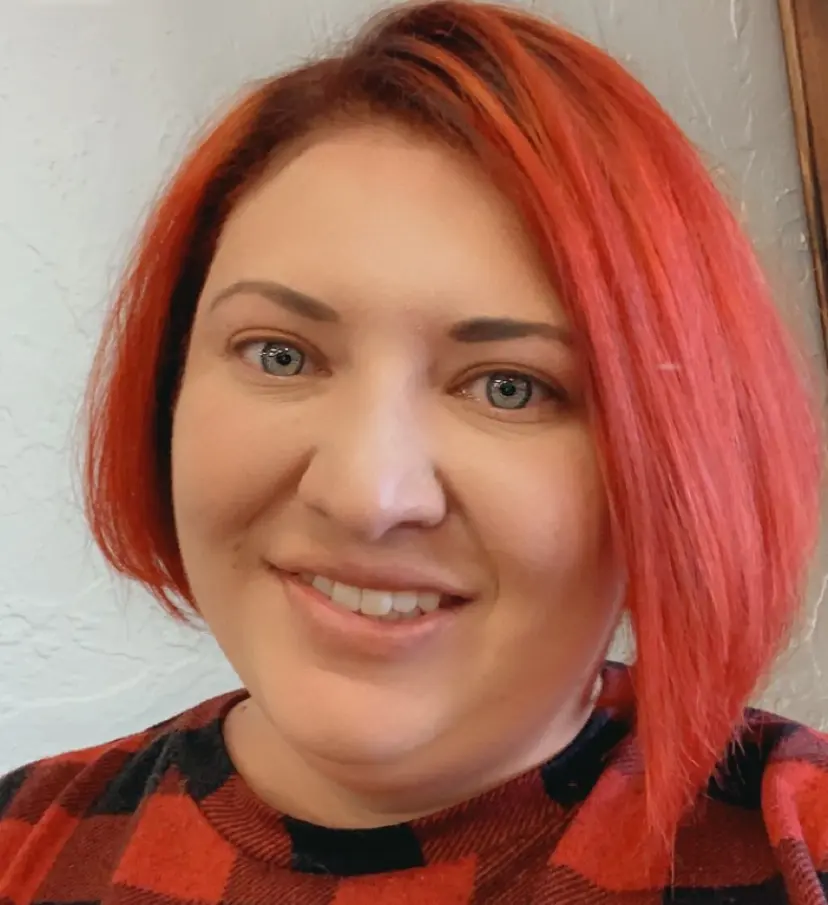Cocaine Overdose: Signs, Symptoms, & What to Do



Marissa Moore, MA, LPC, LCPC, is a freelance writer and mental health counselor. She owns Mending Hearts Counseling and virtually serves clients living in Missouri and Kansas.

Ryan Kelley is a nationally registered Emergency Medical Technician and the former managing editor of the Journal of Emergency Medical Services (JEMS).




Marissa Moore, MA, LPC, LCPC, is a freelance writer and mental health counselor. She owns Mending Hearts Counseling and virtually serves clients living in Missouri and Kansas.

Ryan Kelley is a nationally registered Emergency Medical Technician and the former managing editor of the Journal of Emergency Medical Services (JEMS).
Cocaine, an illicit and highly addictive stimulant substance, can have widely variable effects on an individual that can sometimes be unpredictable. As a consequence, it can be hard to know how much is too much for any given person.1 Overdosing on any drug, including cocaine, is always considered a medical emergency.
If you or someone you love is overdosing on cocaine, call 911 immediately.2
What to Do if Someone Is Overdosing on Cocaine
Cocaine-involved overdoses are on the rise and can appear as (and quickly become) a medical emergency. If you think someone is overdosing on cocaine, do not hesitate – call 911 right away.3 If there is any possibility opioids were involved–if the person has lost consciousness and is not breathing, for example–administer naloxone immediately and remain with the person until help arrives.
A Note About Naloxone
Naloxone, which is sold in different dosage forms under various brand names including Narcan, Kloxxado, and Evzio, is a medication that can reverse the effects of an opioid overdose.4 Narcan, which is one of the most popular opioid overdose reversal drugs on the market, can be purchased without a prescription in most major pharmacies throughout the United States.2
Given the rise of polysubstance overdose in the United States, there is significant potential that street substances like cocaine may be taken in conjunction with opioids like fentanyl, both with and without the person being aware of it.5 Therefore, if you have access to naloxone and believe opioids were involved in someone overdosing on cocaine, administer it right away after calling 911.2 Naloxone will not cause harm to someone who does not have opioids in their system, however it can potentially save their life if they do.2
Signs of a Cocaine Overdose
There are some common signs that someone who is overdosing on stimulants like cocaine may exhibit. Some of these include, but are not limited to, the following:6
- Nausea
- Vomiting
- Tremors
- Confusion
- High blood pressure
- Psychosis or hallucinations
- Sweating or overheating
- Irregular heart rate or breathing
- Chest pain and/or tightness
- Panic or extreme anxiety
Can You Die From a Cocaine Overdose?
Yes, you can die from a cocaine overdose.6 In fact, the Centers for Disease Control and Prevention reported an estimated 29,918 cocaine-involved overdose deaths in the United States in 2023.7
An overdose occurs when there is more of a substance in the body than the body can handle.8 The exact effects of a drug overdose depends on many factors, including the type of drug that is present in the body at the time. Stimulant overdoses (including cocaine overdoses) can cause potentially fatal medical events like stroke, seizure, and heart attack.9
Risk Factors for Cocaine Overdose
Cocaine can have serious effects on the body, many of which can contribute to overdose and prove fatal. Some of the most common factors that increase one’s risk of overdosing include, but are not limited to, the following:1,6,10
- Route of administration (e.g., smoked, snorted, injected, etc.)
- Amount consumed
- The presence of underlying health conditions
- Using cocaine in tandem with other substances, especially alcohol and opioids.
While these factors increase the likelihood of a cocaine overdose, it is important to be aware that any amount of cocaine consumption can be fatal.5
Dangers of Cocaine Mixed with Fentanyl
In 2023, nearly 75,000 of the 107,543 fatal drug overdoses in the United States involved synthetic opioids like fentanyl.7 More specifically, approximately 65% of overdose deaths involving stimulants like cocaine also involved an opioid.11
There are several reasons for the high rate of overdose deaths involving stimulants and opioids like fentanyl. The use of more than one substance, or polysubstance use, is common among people who use drugs.12 In many cases, combined opioid and cocaine use is intentional, with the individual either co-administering the drugs simultaneously or using opioids and stimulants at different times.12 In some cases, drug dealers mix fentanyl or other synthetic opioids into other drugs they are trying to sell, either accidentally while preparing drugs for sale or purposefully.5
The combined use of a stimulant like cocaine and an opioid like fentanyl, which can suppress breathing, creates highly unpredictable possibilities, as their simultaneous use can modify or mask effects of one another, increasing the likelihood of overdose.13
Treatment for Cocaine Addiction
If you or someone you love has a cocaine addiction, know that you are not alone. You do not need to remain trapped in an endless cycle of misuse, as there are treatment options available that can help you reclaim control of your life.
There are several levels of care that can meet you where you are at in the recovery process. Depending on your needs and overall treatment goals, you may be a good fit for one or more of the following programming options:
- Medical Detox
- Inpatient treatment
- Partial hospitalization programs
- Intensive outpatient programs
- Outpatient treatment
Once you have completed your course of care, you can continue to grow in your recovery with additional support, such as that offered through aftercare and sober living.
Get Help For Yourself or A Loved One Today
Recovery may seem daunting, but effective help is available. Explore residential drug rehabs or specialized alcohol addiction treatment programs to find the right environment for healing. Use our free tool to search for addiction treatment by insurance, location, and amenities now.
FAQs
-
National Institute on Drug Abuse. (2024, September 27). Cocaine. https://nida.nih.gov/research-topics/cocaine
-
Centers for Disease Control and Prevention. (2024, April 22). What to do if you think someone is overdosing. https://www.cdc.gov/stop-overdose/response/index.html
-
Centers for Disease Control and Prevention. (2022). A Stimulant Guide: Answers to Emerging Questions in the Context of the Overdose Epidemic in the United States. https://www.cdc.gov/overdose-prevention/media/pdfs/2024/03/CDC-Stimulant-Guide.pdf
-
Centers for Disease Control and Prevention. (2024, April 22). Naloxone frequently asked questions. https://www.cdc.gov/stop-overdose/naloxone-faq/index.html
-
National Institute on Drug Abuse. (2021, June 1). Fentanyl drug facts. https://nida.nih.gov/publications/drugfacts/fentanyl
-
Centers for Disease Control and Prevention. (2022). Answers to emerging questions about stimulants in the context of the overdose epidemic in the United States. https://www.cdc.gov/overdose-prevention/media/pdfs/2024/03/CDC-Stimulant-Guide.pdf
-
Centers for Disease Control and Prevention. (2024, May 15). U.S. Overdose Deaths Decrease in 2023, First Time Since 2018. https://www.cdc.gov/nchs/pressroom/releases/20240515.html?CDC_AAref_Val=https://www.cdc.gov/nchs/pressroom/nchs_press_releases/2024/20240515.htm
-
Penington Institute for International National Overdose Awareness Day. (n.d.). Overdose Basics. https://www.overdoseday.com/overdose-basics/
-
National Harm Reduction Coalition. (n.d.). Opioid Overdose Basics. https://harmreduction.org/issues/overdose-prevention/overview/overdose-basics/what-is-an-overdose/
-
Schwartz, E. K. C., Wolkowicz, N. R., De Aquino, J. P., MacLean, R. R., & Sofuoglu, M. (2022). Cocaine use disorder (CUD): Current clinical perspectives. Substance abuse and rehabilitation, 13, 25–46. https://pmc.ncbi.nlm.nih.gov/articles/PMC9451050/
-
The Pew Charitable Trusts. (2024, August 12). Stimulant Use is Contributing to Rising Fatal Drug Overdoses. https://www.pewtrusts.org/en/research-and-analysis/fact-sheets/2024/08/stimulant-use-is-contributing-to-rising-fatal-drug-overdoses
-
Centers for Disease Control and Prevention. (n.d.). Polysubstance Use Facts. https://www.cdc.gov/stop-overdose/media/images/polysubstance-use/pdf/Polysubstance-Use-Fact-Sheet_508.pdf
Our Promise
How Is Recovery.com Different?
We believe everyone deserves access to accurate, unbiased information about mental health and recovery. That’s why we have a comprehensive set of treatment providers and don't charge for inclusion. Any center that meets our criteria can list for free. We do not and have never accepted fees for referring someone to a particular center. Providers who advertise with us must be verified by our Research Team and we clearly mark their status as advertisers.
Our goal is to help you choose the best path for your recovery. That begins with information you can trust.











